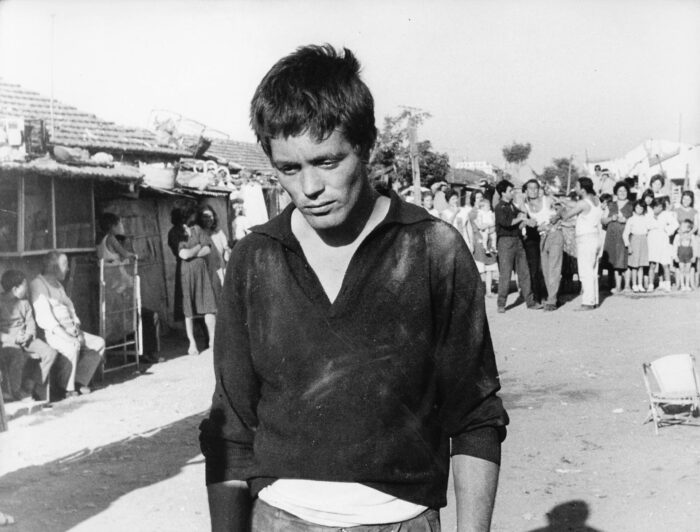“Call me Accattone,” says Vittorio (Franco Citti). “There are many Vittorios, but only one Accattone.” This is also true of Pier Paolo Pasolini’s first film: it is unique.
Accattone‘s images convey a sensitivity, a sense of freshness that is usually found in the best poetry. It feels as if Pasolini had discovered a new continent, as yet unnamed, and made an expedition to a secret place. He is a reporter in the world of poetry. Bernardo Bertolucci, who worked as an assistant director, recounted the mood of the shoot: “I felt I was witnessing the birth of a language.”
The world of poverty that Pasolini captures on film with his sensitive poetic soul is not idealised: sex workers do not receive sick pay, and according to Accattone, being a pimp is more dishonourable than stealing. Pasolini shows the outskirts of Rome from within, from the street level, in a way that makes one feel the observer was a hard-up poet who saw the world with immeasurably more sensitivity and rawness than the wealthy.
Pasolini looks around and sees indescribable beauty in people’s laughter, in their happiness in a world that is fundamentally sad, brutal and cruel. The dream sequence in which Accattone dreams of his own funeral could have come from a film by Luis Buñuel or Carl Theodor Dreyer: Pasolini proved his genius with his very first film!
Joonas Nykänen
